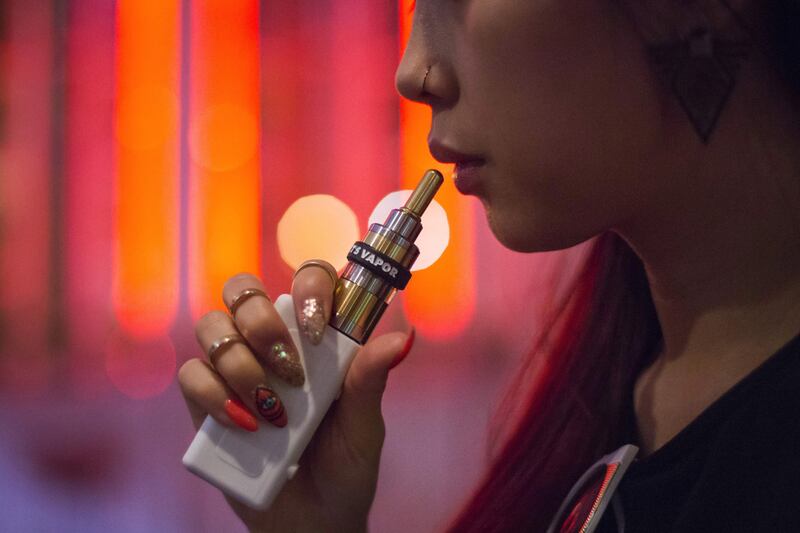Smoking kills. We’ve known that fact since the US surgeon-general’s report on smoking and tobacco use was released in 1964. Since then, governments around the world have been trying to find ways to deter people from smoking: advertising the risks and promoting healthy lifestyles, placing increasingly high taxes on tobacco products and restrictions on their packaging and points of sale and banning smoking in public places. This country still has a very high incidence of smoking and its related diseases, although antismoking measures are beginning to have an effect.
But not everybody who gives up cigarettes, cigars and shisha gives up nicotine altogether. Many people have embraced e-cigarettes, with which vapour, not smoke, is inhaled. As The National has reported, there is some evidence from two United Kingdom studies that e-cigarettes are safer than normal cigarettes and that their use could help smokers quit. Nevertheless, e-cigarettes cannot be licensed for import to the UAE, based on World Health Orgainsation guidelines. Of course, governments can only do so much to stop people from having bad habits.
Everything we do in life involves risk – from crossing the road to eating out in an unfamiliar restaurant. People who smoke are generally aware of the risk they are taking, and to a certain extent that is their own business. The difficulty comes when a person’s habit creates a cost to society or the state – in this case through the health system in treating people with smoking-related diseases such as lung cancer, heart attacks and diabetes.
When it comes to vaping, the same arguments could apply. There are also concerns about what users are actually consuming. The “juices” people put into e-cigarette devices (sometimes marketed as “incense burners”) come in dozens of varieties and there is scant information about their ingredients or provenance. Vaping is also being promoted as a glamorous or cool activity.
In these circumstances, it is not unreasonable for the authorities to be cautious and implement a level of regulation on vaping until there is definitive evidence about its effects.





